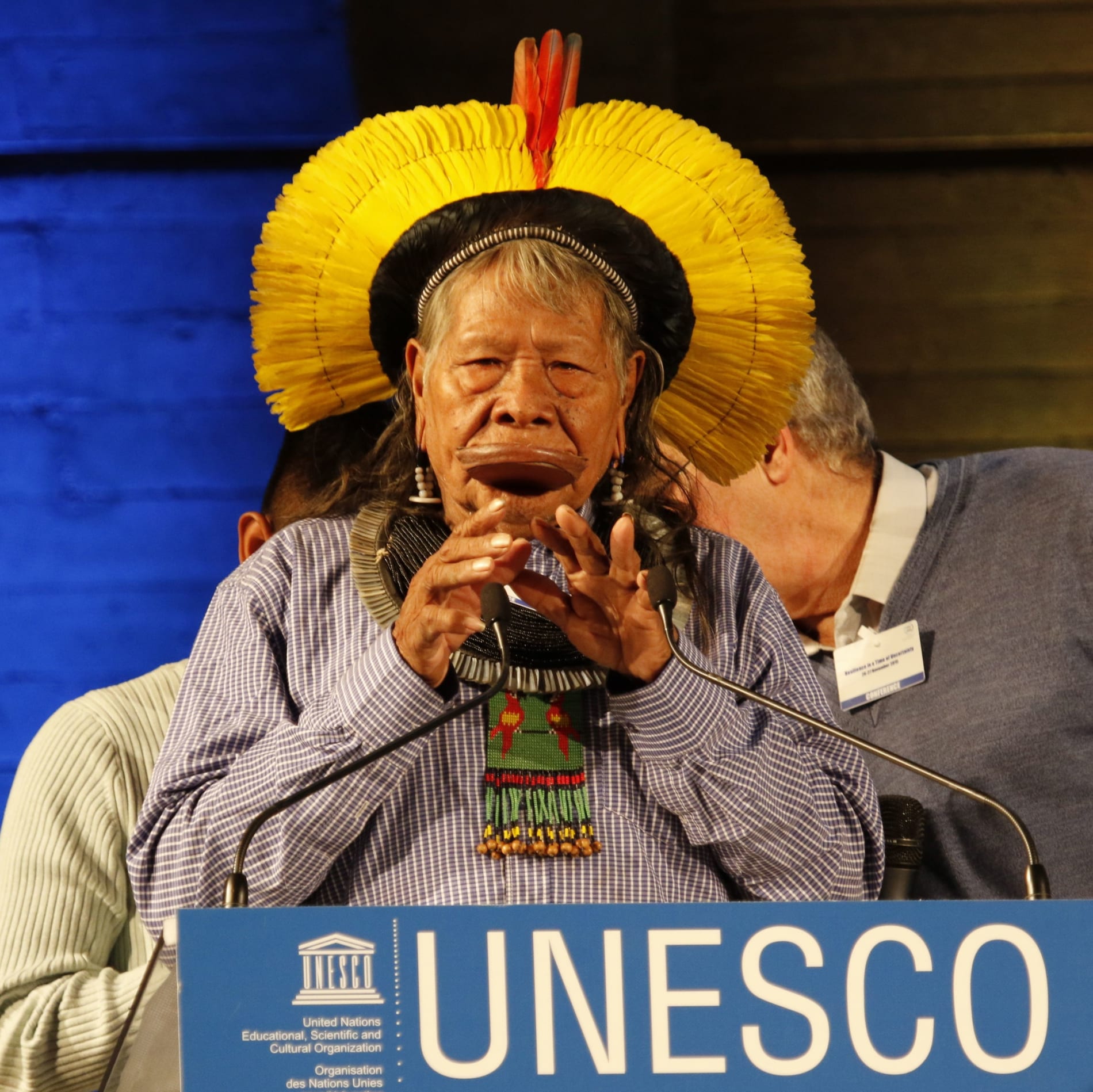
Read the Charter of Independence here.

By NARDINE GROCH
Representatives from indigenous Australia were among hundreds of delegates from around the globe who united in Paris last week to express the challenges they faced from climate change and to offer solutions.
The UNESCO organised two-day conference, Resilience in a Time of Uncertainty: Indigenous Peoples and Climate Change, hoped to encourage world leaders and policy makers to consider indigenous peoples' rights and knowledge during the Paris climate conference, which began yesterday.
According to UNESCO, more than 400 million of the world’s indigenous peoples live in territories that are highly vulnerable to the impact of climate change.

Yet, while indigenous people are on the frontline of climate change impacts, most do not see themselves as passive victims but are increasing using their local knowledge and skills to offer solutions in their local territories.
In the conference’s opening plenary session last Thursday, Special French Envoy for the Protection of the Planet Nicolas Hulot said including a more holistic indigenous approach in the international framework for tackling climate change could offer more broad-based solutions.
“History has too often sidelined indigenous peoples and climate change is truly the most unjust problem as it hits the most vulnerable who have not contributed to it," he said.
“We have a crisis of meaning and excess, we are technologically triumphant but culturally and spiritually we have failed that is why we need an alliance,” Mr Hulot said.
The Kimberley Land Council group from Australia led the way in carbon off-setting with an entire side event dedicated to their pioneering methods on fire management and climate mitigation.
Research by the group found that without indigenous people using their traditional way of managing land, the fuel loads in the savanna grasslands of Northern Australia have continued to increase and with a warming climate are directly contributing to late season wildfires.
Land and sea manager Ari Gorring said the research found reducing the impacts of late season hot fires through traditional fire management also reduced greenhouse gas emissions.

“By bringing together scientists, indigenous people and government we came up with a methodology by which you could measure the amount of greenhouse gases being reduced by this traditional fire management and then measure what the savings are in emissions," she said.
“This is a technology that has been developed in Australia but also has global significance and [could] be implemented in regions with similar vegetation types."
A World Resources Institute report released this month found securing the forest rights of indigenous peoples and local communities could have huge economic and climate change mitigation benefits through avoided deforestation.
Indigenous peoples account for just 5 per cent of the world's population but manage and occupy 11 per cent of the world’s forests and 20 per cent of the world's land surface, which has been calculated to hold around 312 billion tonnes of carbon.
In a powerful opening address at the conference on Thursday, Brazilian Kayapo chief Cacique Raoni Metuktire said the world needed the knowledge of indigenous people.
“The world must know that the preservation of indigenous land also means the preservation of nature," he said.
“I have come to France to launch an appeal and I ask all indigenous leaders arriving for the COP21 [Paris climate talks] to have a shared objective for the protection of nature," Chief Raoni said.

Hindou Oumarou, a member of the Mbororo people in Chad and co-chair of the global steering committee of the International Indigenous Peoples' Forum on Climate Change, stressed the need for indigenous knowledge and rights to be written into the final climate change agreement.
“This is an issue of human rights and these rights such as food security, access to healthcare and clean water must all be included in the Paris agreement," she said.
“There must also be strong financial commitments – the $5 million promised through the Green Climate Fund has so far not appeared. Our people need access to a separate indigenous fund,” Ms Oumarou said.
A UNFCC review of 119 Intended national determined contributions (INDCs), which were submitted up until October 1, failed to outline the role of indigenous peoples and found the collective emissions reductions of those countries would still lead to a global temperature rise of 3C by 2030.
“The emissions targets are to be implemented by 2020 but that is too far away, we are seeing problems now … decisions need to be directed towards the indigenous peoples on islands that are going to disappear,” Ms Oumarou said.
So far references to indigenous people in the INDCs have been in relation to the "reduced emissions from deforestation and forest degradation", or REDD+ climate mitigation scheme, which outlines a safeguard ensuring the "respect for the knowledge and rights of indigenous peoples and local communities".
However, decisions around how much of the UNFCCC’s Green Climate Fund will be set aside for REDD+ still needs to be negotiated, with 50 per cent of the fund said to be designated to climate mitigation and 50 per cent for climate adaptation.
UNESCO Director-General Irina Bokova closed the conference on Friday with a call to focus on human and indigenous rights and global solidarity during the Paris climate talks, known as COP21 .
“No society stands alone because no people can survive in isolation, we must stand together with all peoples on the same planet sharing the same destiny and no one can be left behind, particularly the most vulnerable and the most marginalised."
“This is hopefully what will be created and world leaders will all be courageous at the COP21,” Ms Bokova said.